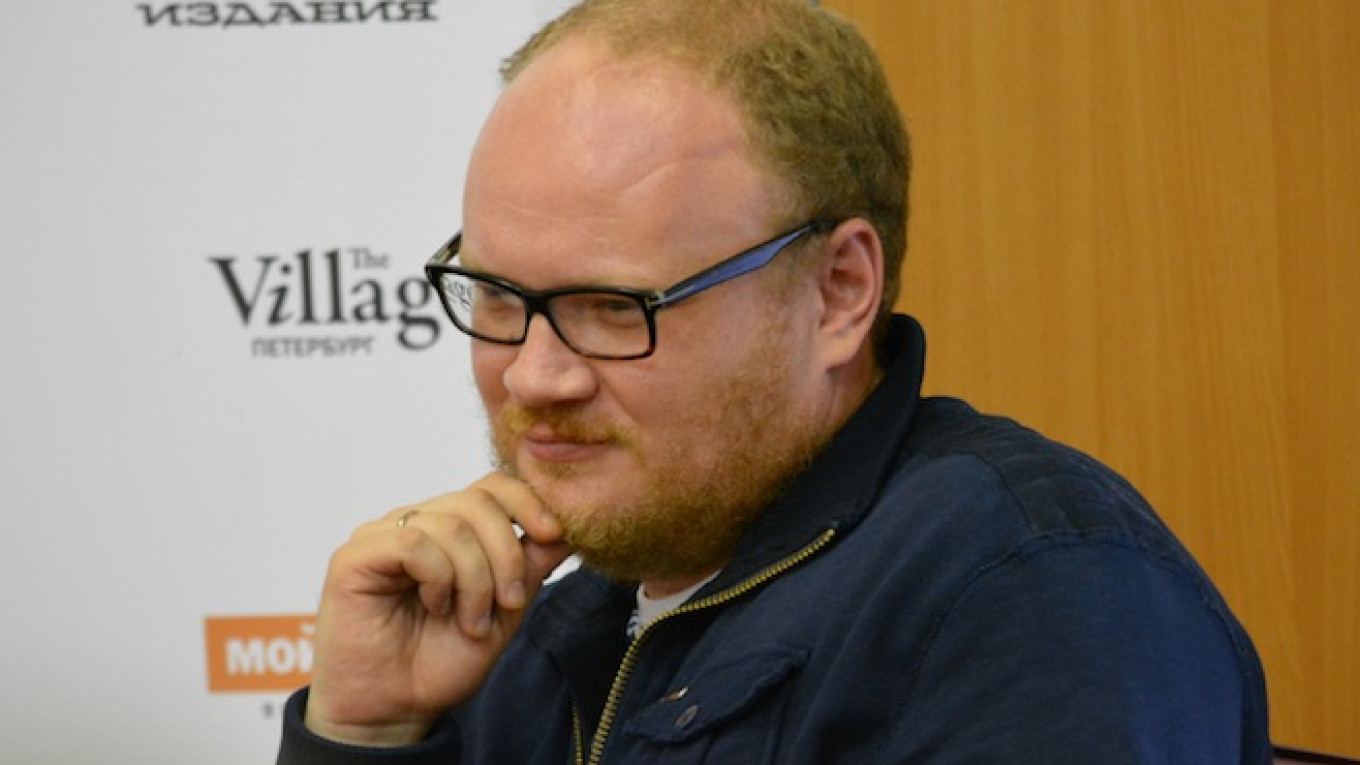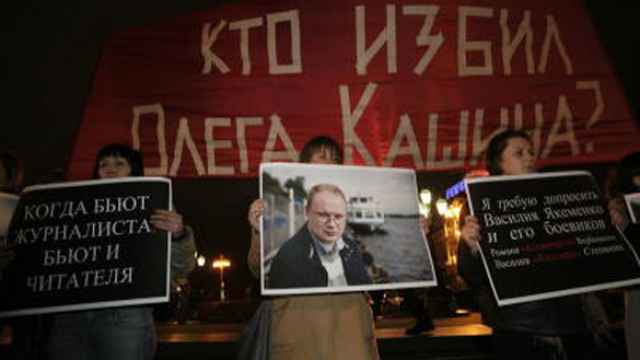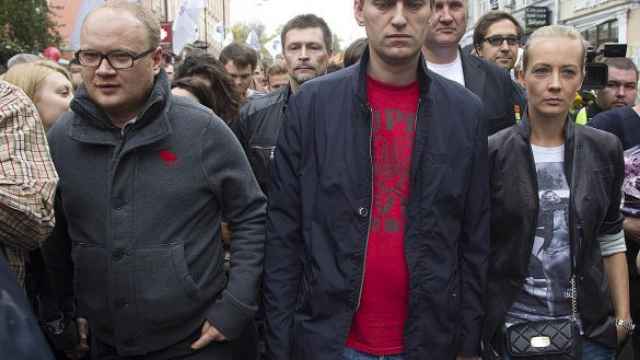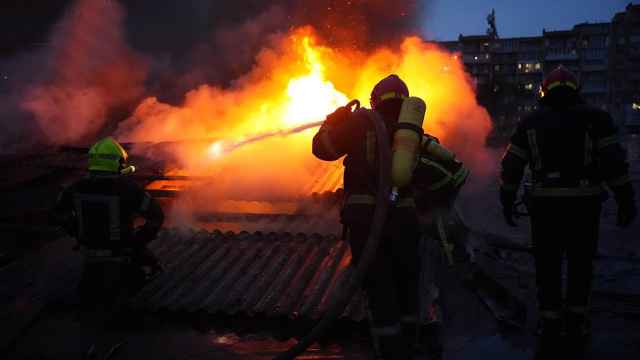Russian journalist Oleg Kashin has filed a complaint against Russian investigators with the European Court of Human Rights for "inaction" during their investigation of the brutal beating that left him in a coma in 2010.
Kashin, who has blamed the attack on a pro-Kremlin youth movement and its allies, had earlier sued the Federal Security Service in Russia for "doing nothing" to find the perpetrators of the attack. A Moscow court dismissed the complaint in November 2013.
On Monday, Kashin's lawyer, Ionko Grozev, told the online news portal MediaZona that the complaint had been registered with the Strasbourg-based court in late October but the court only responded saying it would begin examining the case in late November.
The complaint accuses Russian investigators of violating two articles of the European Convention for the Protection of Human Rights: the right to life and the right to an adequate means of legal protection.
"Law enforcement authorities apparently aren't straining themselves [to find the culprit], and the latest details of my own case became known to me only by reading the St. Petersburg-based news portal Fontanka.ru," Kashin wrote last month in the Svobodnaya Pressa, or Free Press, news portal.
The savage beating Kashin endured in November 2010 sent shockwaves through Moscow's journalism community, with many activists declaring the incident a sad reminder of how dangerous it is to work as a journalist in today's Russia.
Kashin was attacked by two unknown men who beat him with a tire iron so brutally that he was in a coma for a week and forced to undergo several operations.
The attack is widely believed to have been tied to Kashin's professional work, as the perpetrators did not steal any of his belongings and the journalist has a reputation for critical reporting on topics close to the hearts of opposition activists.
The incident got the attention of then-President Dmitry Medvedev, who ordered investigators to get to the bottom of the attack.
Three years later, however, the investigation has gone nowhere, Groznev told MediaZona.
A Message from The Moscow Times:
Dear readers,
We are facing unprecedented challenges. Russia's Prosecutor General's Office has designated The Moscow Times as an "undesirable" organization, criminalizing our work and putting our staff at risk of prosecution. This follows our earlier unjust labeling as a "foreign agent."
These actions are direct attempts to silence independent journalism in Russia. The authorities claim our work "discredits the decisions of the Russian leadership." We see things differently: we strive to provide accurate, unbiased reporting on Russia.
We, the journalists of The Moscow Times, refuse to be silenced. But to continue our work, we need your help.
Your support, no matter how small, makes a world of difference. If you can, please support us monthly starting from just $2. It's quick to set up, and every contribution makes a significant impact.
By supporting The Moscow Times, you're defending open, independent journalism in the face of repression. Thank you for standing with us.
Remind me later.






